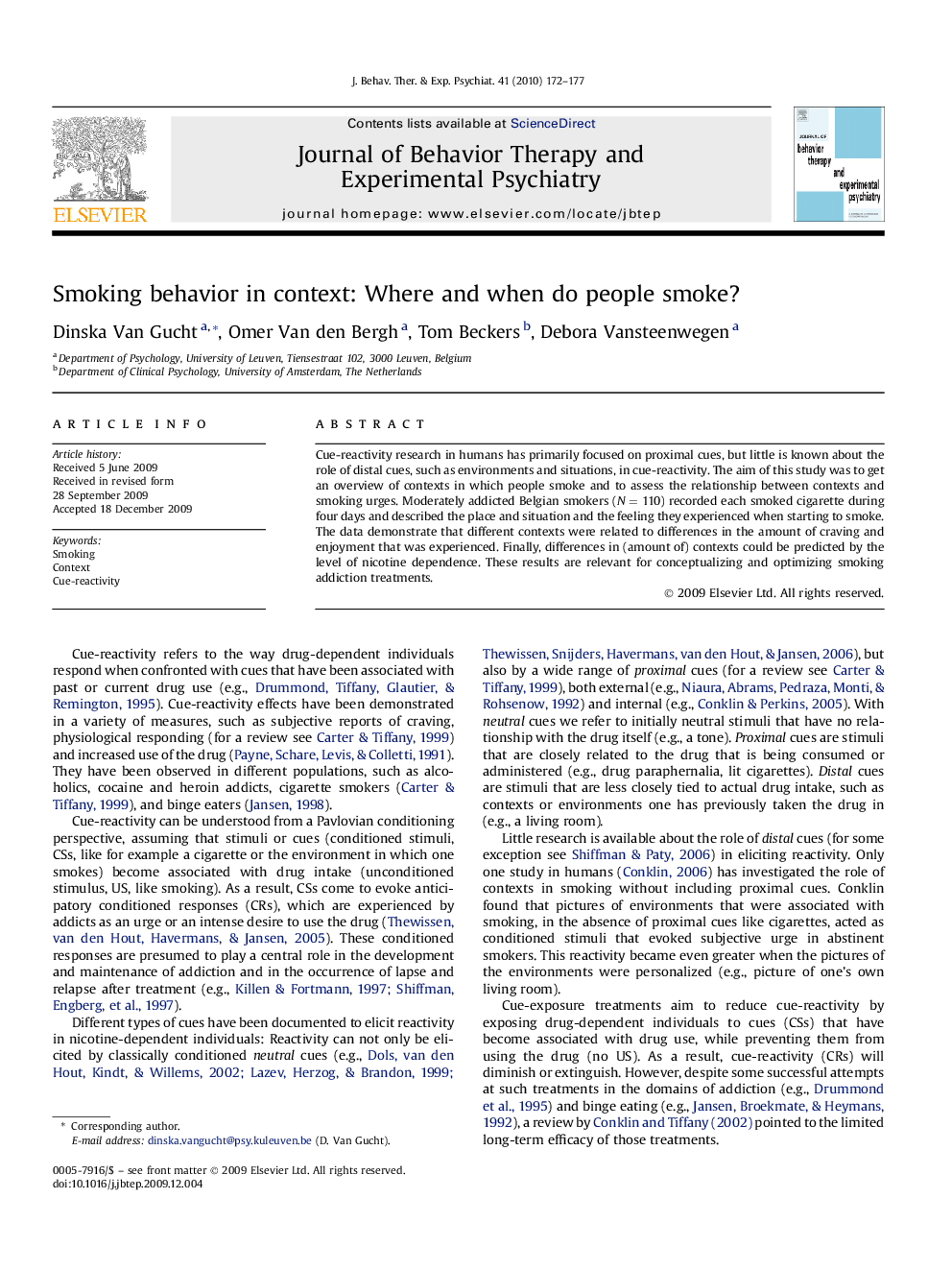| Article ID | Journal | Published Year | Pages | File Type |
|---|---|---|---|---|
| 910540 | Journal of Behavior Therapy and Experimental Psychiatry | 2010 | 6 Pages |
Cue-reactivity research in humans has primarily focused on proximal cues, but little is known about the role of distal cues, such as environments and situations, in cue-reactivity. The aim of this study was to get an overview of contexts in which people smoke and to assess the relationship between contexts and smoking urges. Moderately addicted Belgian smokers (N = 110) recorded each smoked cigarette during four days and described the place and situation and the feeling they experienced when starting to smoke. The data demonstrate that different contexts were related to differences in the amount of craving and enjoyment that was experienced. Finally, differences in (amount of) contexts could be predicted by the level of nicotine dependence. These results are relevant for conceptualizing and optimizing smoking addiction treatments.
